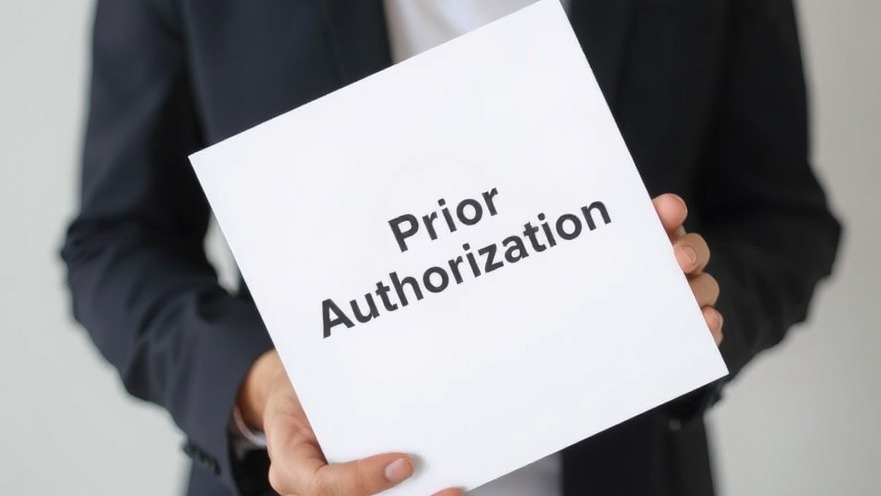
Understanding Prior Authorization: A Critical Component of Medicaid Managed Care
Prior authorization is an insurance practice that permits health insurers, particularly Medicaid managed care organizations (MCOs), to evaluate whether the requested medical services or medications are necessary and appropriate for patients before they can access them. This process has become an increasingly significant issue as three-quarters of Medicaid enrollees rely on MCOs for their healthcare needs. However, recent studies and reports have raised serious concerns regarding its operational efficacy and impact on patient care.
Examining Denial Rates and Access to Care
A report by the U.S. Department of Health and Human Services (HHS) Office of Inspector General revealed a concerning trend: Medicaid MCOs had a prior authorization denial rate of 12.5%, significantly more than the Medicare Advantage rate of 5.7%. Alarmingly, most Medicaid enrollees—89%—do not appeal these denials, and among those who do, only a third succeed in overturning the initial decision. This lack of advocacy and success in appealing decisions points to a broader systemic issue regarding the ease of access to necessary healthcare services.
Government Initiatives to Streamline Processes
In response to these challenges, the Biden Administration introduced the Interoperability and Prior Authorization final rule in 2024. This rule is designed to streamline the prior authorization process across various health plans, including Medicare and Medicaid, with the aim of enhancing transparency and reducing burdens on both patients and providers. Additionally, legislative measures in numerous states have sought to limit prior authorization requirements, reflecting a growing awareness and commitment to improving patient care experiences.
Stakeholder Perspectives: Increasing Concerns
A recent Kaiser Family Foundation (KFF) poll highlighted that a striking 73% of adults perceive health insurance-related delays and denials as a major problem. There is widespread skepticism about the feasibility of health insurers adhering to pledges aimed at reducing prior authorization burdens. Many individuals doubt that these promises will yield meaningful changes, reflecting a broader distrust in the system.
Comparative Analysis with Medicare Advantage
The disparity between Medicaid and Medicare Advantage in terms of prior authorization success rates raises important questions about systemic inconsistencies that affect patient care across programs. While appeal rates in Medicare Advantage stand at a striking 82% overturn rate, similar success is not mirrored in Medicaid. Exploring these differences could provide insights vital for policy reform and the enhancement of patient care across all health insurance programs.
Future Considerations for Management and Oversight
As the healthcare landscape evolves, so too must the regulatory frameworks that govern it. MACPAC has advocated for stronger state agency oversight concerning prior authorization processes. Such initiatives could foster a more transparent and accountable system, ultimately leading to improved patient experiences and outcomes.
Taking Action: Towards Better Health Outcomes
The findings from the KFF survey and related research highlight a pressing need for patients, providers, and policymakers to advocate for more favorable prior authorization processes. Stakeholders must push for legislative changes and increased oversight to ensure that these policies serve their intended purpose: enhancing patient care rather than impeding access.
In conclusion, the prior authorization policies in Medicaid Managed Care represent a complex interplay of insurance practices and healthcare access; the current trends indicate a need for comprehensive review and reform. As we navigate this system, it is critical for all stakeholders, especially those directly affected, to engage actively in dialogues aimed at promoting transparent and equitable healthcare access.
 Add Row
Add Row  Add
Add 




Write A Comment